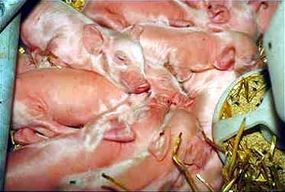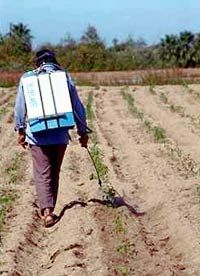Production: Organic vs. Conventional
As you can imagine, organic agricultural practices are quite distinct from those of "conventional" farming.
Conventional farmers:
- apply chemical fertilizers to the soil to grow their crops
- spray with insecticides to protect crops from pests and disease
- use synthetic herbicides to control weed growth
Organic farmers:
- feed soil and build soil matter with natural fertilizer to grow their crops
- use insect predators, mating disruption, traps and barriers to protect crops from pests and disease
- make use of crop rotation, mechanical tillage and hand-weeding, as well as cover crops, mulches, flame weeding and other management methods to control weed growth
As a last resort, organic farmers may apply certain botanical or other non-synthetic pesticides (for example, rotenone and pyrethrins, both of which are from plants).
Advertisement

The meat, dairy products and eggs that organic farmers produce are from animals that are fed organic feed and allowed access to the outdoors.
Unlike conventionally raised livestock, organic livestock must be kept in living conditions that accommodate the natural behavior of the animals. For instance, ruminants (including cows, sheep and goats) must have access to pasture. Although they may be vaccinated against disease, organic livestock and poultry may not be given antibiotics, hormones or medications in the absence of illness. Instead, livestock diseases and parasites are controlled largely through preventive measures such as rotational grazing, balanced diet, sanitary housing and stress reduction.
